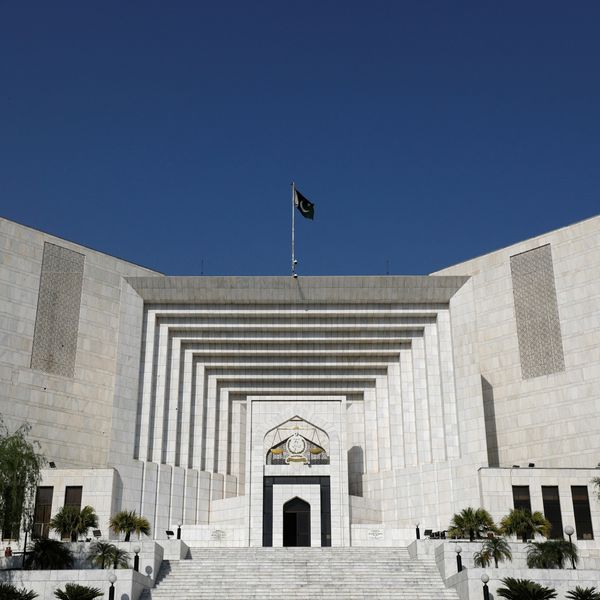Pakistan’s opposition leader resigns from Judicial Commission citing legal challenges after protests
Omar Ayub Khan sends resignation to National Assembly speaker, citing legal challenges, nominates Barrister Gohar as successor

Javed Hussain
Correspondent
I have almost 20 years of experience in print, radio, and TV media. I started my career with "Daily Jang" after which I got the opportunity to work in FM 103, Radio Pakistan, News One, Ab Tak News, Dawn News TV, Dunya News, 92 News and regional channels Rohi TV, Apna Channel and Sach TV where I worked and gained experience in different areas of all three mediums. My journey from reporting to news anchor in these organisations was excellent. Now, I am working as a correspondent with Nukta in Islamabad, where I get the opportunity of in-depth journalism and storytelling while I am now covering parliamentary affairs, politics, and technology.

Omar Ayub Khan during a media briefing in Islamabad on Jan. 10, 2021.
AFP/File
Omar Ayub Khan, Pakistan’s Opposition Leader in the National Assembly and senior leader of jailed former Prime Minister Imran Khan’s party, has resigned from the Judicial Commission of Pakistan.
His resignation, addressed to the Speaker of the National Assembly, follows mounting legal pressures and challenges.
The judicial commission was formed after Parliament passed the 26th Constitutional Amendment in October. The amendment aimed to reform judicial appointments but faced criticism from opposition parties, who argued it could increase executive influence over the judiciary. The government defended the reforms, calling them essential for judicial transparency and efficiency.
In his resignation letter, Omar Ayub cited the growing number of legal cases and First Information Reports (FIRs) filed against him as the reason for his decision.
“This decision has been taken after careful consideration and is necessitated by the multitude of FIRs and legal cases filed against me, which require my immediate and undivided attention,” Ayub wrote. “The current legal challenges hinder my ability to serve the Commission effectively, and I believe it is in the best interest of the institution to allow someone with a clear focus to assume this vital role.”
He proposed Barrister Gohar Ali Khan, a Member of the National Assembly and the chairman of Imran Khan’s Pakistan Tehreek-e-Insaf (PTI) party, as his replacement. “I am confident that his legal acumen, integrity, and dedication will be a valuable asset to the Commission,” Ayub added.
The resignation comes in the wake of violent protests in Islamabad from November 24 to 26, demanding the release of Imran Khan. The protests, organized by Khan’s party, were met with heavy crackdowns by the government, leading to numerous arrests and legal actions.
The protests have put a spotlight on Khyber Pakhtunkhwa and the Peshawar High Court (PHC), which have become key centers of activity for PTI leadership. PTI leaders, including Ayub, have frequently sought protective bail from the PHC to evade arrests linked to the protests and other cases.
In recent days, the PHC granted bail to several prominent PTI figures, including KP Deputy Speaker Suriya Bibi, PTI Women’s Wing President Kanwal Shauzab, and other senior members. Bushra Bibi, wife of Imran Khan, was also granted transit bail in 27 cases, shielding her from arrest until December 23.
The judicial commission will now await the formal nomination of Barrister Gohar Ali Khan as Ayub’s successor, pending approval from the Speaker of the National Assembly.






Comments
See what people are discussing